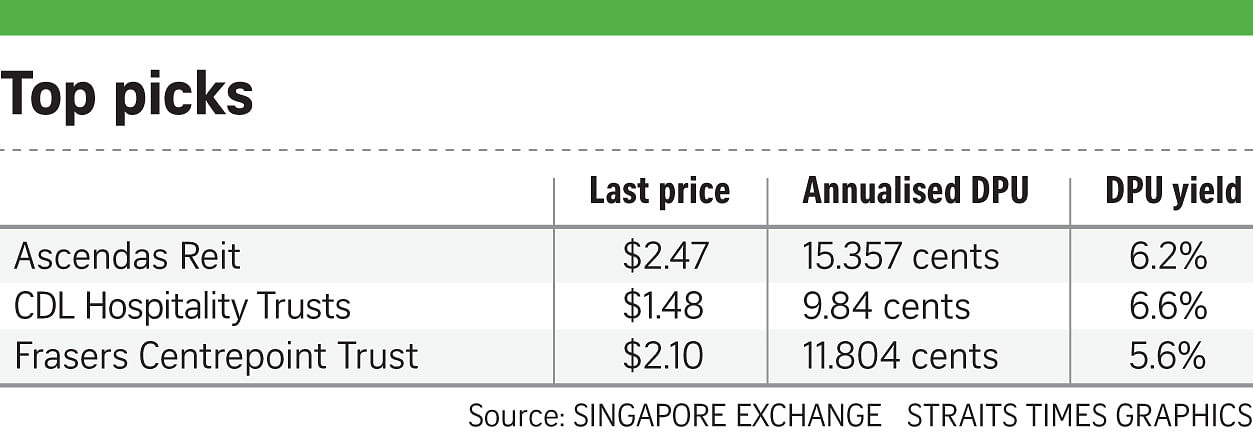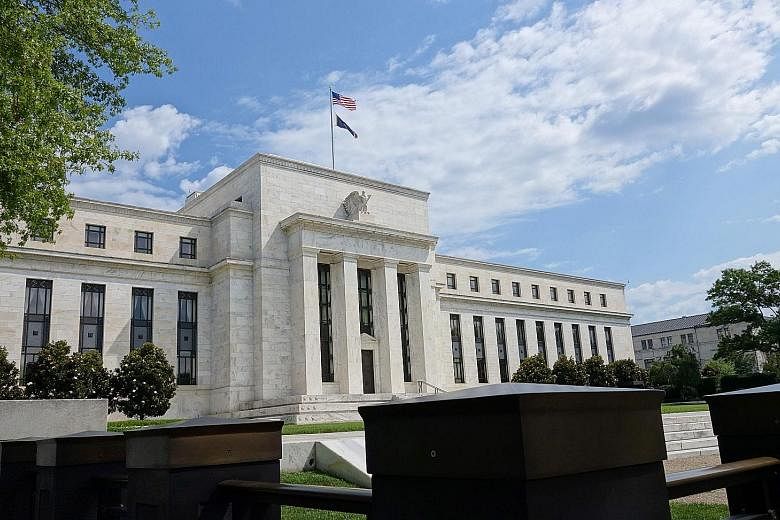Singapore's real estate investment trust (Reit) sector has ridden the wave of risk-adverse sentiment following the Brexit referendum late last month, with the larger firms benefiting more.
The FTSE ST Reit index has risen 5.2 per cent since the June 23 vote in Britain, outperforming the Straits Times Index, which rose 2.5 per cent over the same period.
Several research houses have also upgraded their calls on the sector to "buy" or "overweight".
"With Brexit uncertainty hanging over the global economy, we've seen demand for safe havens and high-yielding stocks, like telcos and transport counters," said Mr Derek Tan, DBS vice-president for group equity research.
"Reits have a high profile with investors in the region and yield is high, and that's been attractive for institutional investors."

S-Reits with larger market capitalisation have shone. Since June 23, Ascendas Reit has risen 6.5 per cent to $2.47, CapitaLand Mall Trust has added 7.4 per cent to $2.17, Mapletree Industrial Trust has advanced 8.7 per cent to $1.745 and Suntec Reit is ahead by 6.3 per cent to $1.78.
The disparity in share price performance between larger and smaller S-Reits suggests there is a group of investors buying from a tactical perspective, with money easily flowing in, Mr Tan noted.
Still, he expects demand for S-Reit to filter down to the mid-cap counters as well because of their high yields.
S-Reits also enjoy a higher yield spread - 4.4 per cent - versus Reits in other countries, when compared against the respective local 10-year Treasury bond yields, Religare analyst Pang Ti Wee noted in a report on Monday.
There is also room for S-Reit prices to rise, given that the yield spread is above historical levels.
Other factors favouring S-Reits include stable dividend distribution policies, lower volatility to earnings and a relatively stable Singapore dollar in relation to other currencies, Mr Pang added.
Of note as well is the likelihood that interest rates will stay low with few now expecting the United States Federal Reserve to hike rates by December, OCBC analyst Andy Wong said in a report last Thursday.
This would help keep borrowing costs lower and support yield spread. For example, the Singapore Government 10-year bond yield fell 15.5 per cent from June 23 to 1.7 per cent on Tuesday.
Analysts are predicting a mixed bag of results this reporting season, which begins today with SPH Reit announcing its third- quarter numbers.
The market expects office Reits to deliver the poorest results this time around, Nomura noted last Friday.
Retailers could continue to see positive rental reversion while hoteliers may enjoy a better year than last, given stronger tourist arrival numbers, said RHB.


